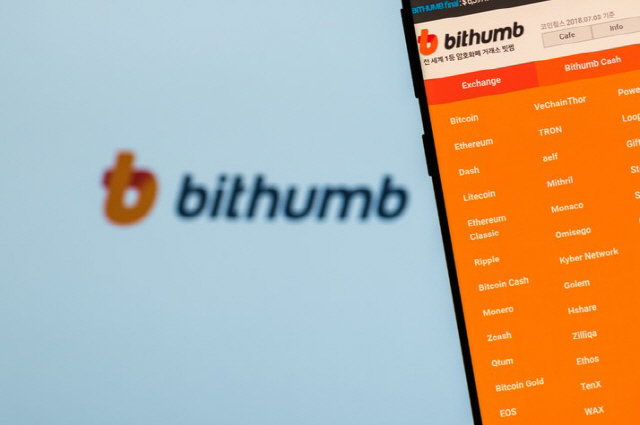
Bithumb Korea selected Samsung Securities as host company at the end of last month and began IPO work with the goal of listing in the second half of 2025. The background of this IPO is to prevent the monopoly of Upbit, the largest exchange in Korea. Second, it is interpreted as an aspect of strengthening management transparency.
Currently, Upbit, a subsidiary of Dunamu, holds an overwhelming first place in the domestic virtual asset market with a market share of over 80%. In comparison, Bithumb’s market share remains at around 15-20%. Bithumb recently took extreme measures to increase trading volume and expand market share, such as introducing a fee waiver policy to increase market share. However, it only had a temporary effect, and the prevailing opinion was that it was unreasonable in the long run due to the nature of the exchange, which mainly relies on transaction fees.
In fact, Bithumb’s sales in the first half of this year amounted to KRW 82.7 billion, a 147.52% decrease from the same period last year (KRW 204.7 billion). During the same period, operating profit also decreased by 89.6% to only 12.7 billion won. In the second quarter of this year, it recorded an operating loss of 34.4 billion won, turning it into a loss. This is the first operating loss since it began disclosing performance in 2017.
As such, Bithumb Korea is in a situation where it cannot escape from worsening profitability for various reasons, but at least if it succeeds in listing, it is expected to become the first company to be listed among domestic virtual asset exchanges. This is expected to be of great help not only from a symbolic perspective but also from an actual management perspective.
Additionally, the promotion of an initial public offering (IPO) can be an opportunity to verify management transparency, such as internal control and governance structure.
Major shareholder risk also contributed to Bithumb’s worsening profitability. Bithumb lost the trust of exchange users as it became embroiled in suspicions of fraudulent listing by management and suspicion of breach of trust and embezzlement by major shareholders. Bithumb CEO Lee Sang-jun is accused of receiving 3 billion won in cash and 400 million won in valuables in exchange for listing recommendations from Kang Jong-hyun, a businessman suspected to be the actual owner of Bithumb, last September. Mr. Kang Jong-hyun is also currently on trial on charges of breach of trust, embezzlement, and stock manipulation from affiliated companies.
Bithumb also began strengthening internal control, perhaps in recognition of the IPO. First, Bithumb Holdings, known as the largest shareholder, and former Chairman Lee Jeong-hoon of Bithumb Korea returned as a registered director of Bithumb Holdings. As former Chairman Lee was appointed as a registered director, Lee Sang-jun, CEO of Bithumb Holdings, who was embroiled in suspicion of recommending coin listings, was excluded from the board of directors. Jaewon Lee, CEO of Bithumb Korea, who is known to be former Chairman Lee’s closest associate, will concurrently hold the position.
Bithumb is preparing for an IPO through various self-rescue measures. Currently, we are planning to list on KOSDAQ, and we are also considering the possibility of changing to KOSPI listing in the future. However, as the deficit has recently increased and major shareholder risks still remain, the IPO process is expected to not be smooth.






